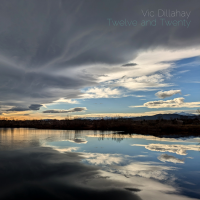For the last decade the songwriter Conor Oberst has released the vast majority of his songs as Bright Eyes, working under that name with groups small and large. Dipping into syles from folk-rock to punk to country to electronica, Bright Eyes relied on Mr. Oberst's open-hearted, sometimes painfully candid songs about romance, songwriting, politics and the porous interaction between art and life, constantly questioning his own honesty as he blurted things out. He could sound as tormented as the emo rockers who would soon turn sensitivity into self-parody, but Mr. Oberst, though born in 1980, also harked back to the 1960s with tunes that baby boomers could appreciate.
Bright Eyes has been one of indie rock's success stories, making its way from home recordings to a Top 10 album ("I'm Wide Awake, It's Morning" in 2005) without a hit single or a major label. But this month Mr. Oberst released an album under his own name, titled “Conor Oberst" (Merge), the way many songwriters have signaled a new start. Over lunch -- the vegetarian burger at the Pink Pony on the Lower East Side -- Mr. Oberst said it's not as weighty as all that.
Mr. Oberst, 28, is still boyish and introspective, with the slight twang and unfailing politeness of his Midwestern upbringing. He talks about his music and career not with arrogance but with a mixture of humility -- he takes pains to credit collaborators and friends -- and something like curiosity.
He had a batch of songs and a plan: to simplify. Bright Eyes' most recent album, “Cassadaga," was a painstaking, sprawling project, wrapping elaborate orchestral arrangements around Mr. Oberst's songs about breakups, rehab, spiritual quests and life as a professional musician. Released in 2007, “Cassadaga" took a year to complete, in multiple studios. And the results were mixed. Even in songs about personal crises, the spontaneity and unguarded tone that Mr. Oberst's fans cherish were often sacrificed to elaborately constructed and sometimes labored production.
For his new album Mr. Oberst decided to set limits: a few musicians, a short time. “A lot of what happens is, for me anyway, a reaction to what came before," he said. “I really wanted to hear space in this music and not have it become too bloated with instrumentation, and to keep the essence of the song." He's not striving for a hit single; his goals, he said, are “freedom and longevity." The hit, like Neil Young's “Heart of Gold," might turn up sooner or later.
“A lot of people that achieve a certain amount of those two things, freedom and longevity, I think they inevitably at some point have a height -- a song or an album that gives them a little leverage to do what they want. Sometimes I think, 'Well, do I need that to happen to me?' But I don't know if I do. It doesn't seem to be affecting anything."
Conor Oberst Once-Bright Eyes, Wide Open to a New Vista
WHAT happened to Bright Eyes?



























